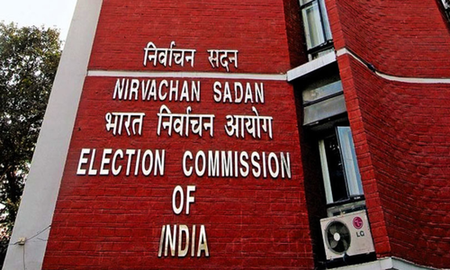Bihar: ECI plans door-to-door intensive revision of electoral rolls
New Delhi, June 24 (IANS) The Election Commission of India on Tuesday announced a Special Intensive Revision of electoral rolls in poll-bound Bihar, which has over 7.8 crore voters, an official said.
Ahead of the October-November Assembly election in 243 constituencies in the state, the ECI plans to launch a house-to-house verification to ensure the enrolment of all eligible voters.
Planned after a gap of 22 years, the intensive revision is aimed at ensuring that the names of all eligible citizens are included in the electoral rolls so as to enable them to exercise their franchise.
The exercise will also ensure that no ineligible voter is included in the rolls and add transparency in the process of addition or deletion of electors.
According to an ECI source, “While conducting the special revision, the ECI shall be scrupulously adhering to the Constitutional and legal provisions regarding eligibility to be registered as a voter and disqualifications for registration in an electoral roll which are clearly laid down in Article 326 of the Constitution of India and Section 16 of the Representation of the People Act, 1950 respectively.”
The intensive revision will see Booth Level Officers (BLOs) conducting a house-to-house survey for verification.
The last intensive revision for Bihar was conducted by the Commission in the year 2003. Various reasons, such as rapid urbanisation, frequent migration, young citizens becoming eligible to vote, non-reporting of deaths and inclusion of the names of foreign illegal immigrants have necessitated the conduct of an intensive revision so as to ensure integrity and preparation of error-free electoral rolls, said an official source.
In the poll-bound state, the Electoral Registration Officers (EROs) are already verifying the eligibility conditions to enrol as an elector under Section 23 of the Representation of People Act 1950.
However, to ensure complete transparency, it would be necessary that the documents on the basis of which such satisfaction of ERO is arrived at are also uploaded in ECINET, as the current level of technology enables so.
These documents shall be accessible to authorised election officials only, keeping in view the privacy issues. In case of any claims and objections raised by any political party or an elector, the AERO would inquire into the same before EROs satisfaction is arrived at.
Under Section 24 of the Act, an appeal against the order of the ERO can also be made to the District Magistrate and the Chief Electoral Officer.
In the 2020 election, the National Democratic Alliance (NDA) won 125 seats, and the Rashtriya Janata Dal-Congress Mahagathbandhan bagged 110 seats, with others winning eight seats.
–IANS
rch/uk



Comments are closed.